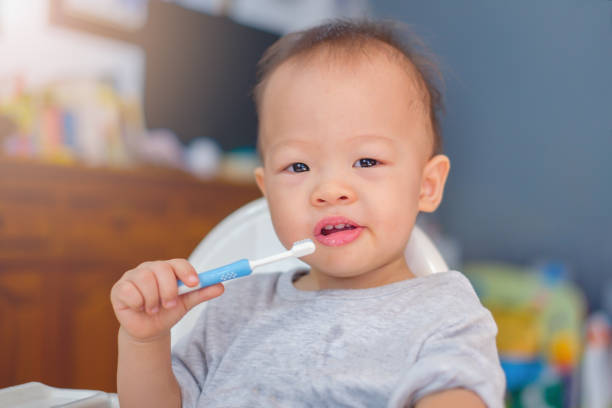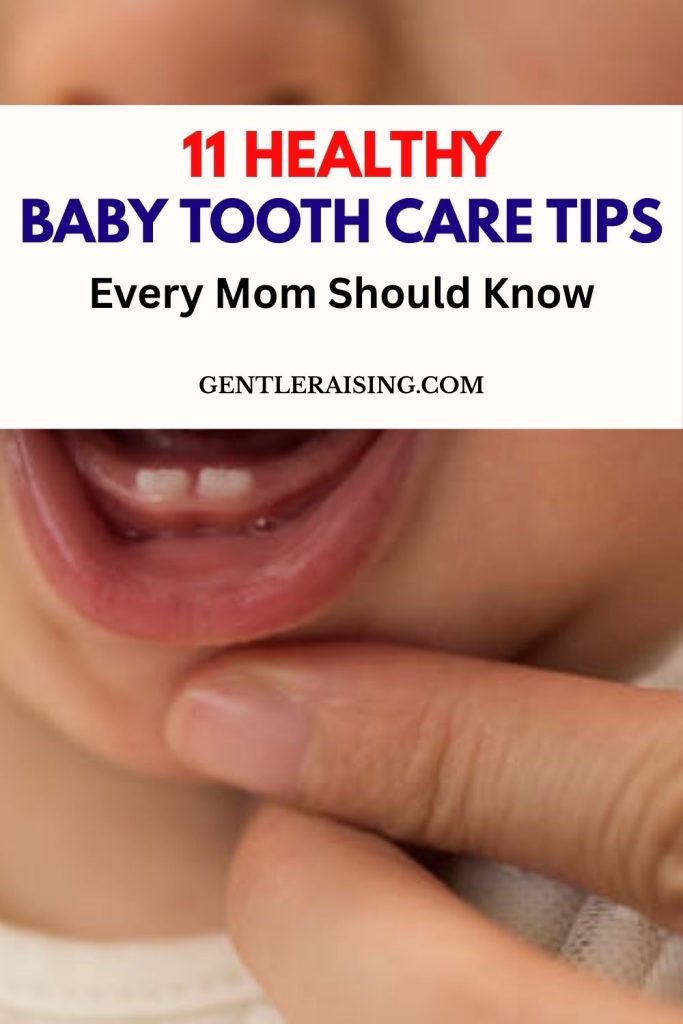Let’s get one thing straight: baby teeth matter. A lot. They’re not just adorable little pearls that make baby smiles ridiculously cute (though, let’s be honest, they do). They set the stage for lifelong oral health, speech development, and even self-esteem. So, if you’ve been wondering when or how to start caring for your baby’s teeth, you’re in the right place.
Truth is, you don’t need a dental degree or fancy equipment. Just a little knowledge, a whole lot of love, and the willingness to turn brushing into something slightly more exciting than, well, brushing.
Let’s break it all down.
1. Start Before the First Tooth Even Pops Out
Sounds a little odd, doesn’t it? But here’s the thing, oral care begins way before that first tooth peeks through the gums. Use a clean, damp washcloth or a soft silicone finger brush to gently wipe your baby’s gums at least once a day.
Why bother? Because it removes milk residue and bacteria, and it gets your little one used to having their mouth cleaned. Translation: fewer protests later.
2. The First Tooth = The First Brush
Once that first tiny tooth shows up (usually around 6 months, give or take), it’s go time. Get a baby toothbrush with ultra-soft bristles and a small head, something gentle enough for sensitive mouths but effective enough to keep that new tooth squeaky clean.
Don’t worry about toothpaste just yet; a smear of water works fine in the beginning.
3. Yes, You Should Use Fluoride. But Just a Smidge
Okay, here’s where a lot of parents get nervous. Fluoride is safe in small doses. Once your baby turns about 18 months, you can start using a rice-grain-sized smear of fluoride toothpaste. That’s it. Tiny. Like, barely-there tiny.
Fluoride helps strengthen tooth enamel and prevent cavities, even in baby teeth. And yes, baby teeth can get cavities.
4. Don’t Share Spoons. Like, Ever.
This one’s sneaky. Parents often test food temperature with the same spoon they later feed their baby with. Harmless? Not quite. That innocent spoon can transfer cavity-causing bacteria from your mouth to theirs.
So if you need to taste, grab a separate spoon. It’s a simple habit that can make a big difference.
5. Bottle Battles: Avoid Bedtime Bottles
We get it. That nighttime bottle feels like a magic wand. Baby fusses? Bottle. Sleep achieved. But if the bottle contains anything but water (like milk or juice), it can pool in the mouth and cause tooth decay. Yes, even during naps.
It’s called “baby bottle tooth decay,” and it’s more common than you’d think.
6. Sweet Snacks? Rethink the Routine
It’s not just what your baby eats, it’s how often. Frequent snacking, especially on sticky or sugary foods like raisins or fruit bars, feeds bacteria and increases the risk of cavities.
Pro tip? Offer sweet treats during meals when there’s more saliva to help wash it away, and make water the go-to drink between meals.
7. Make Brushing a Ritual, Not a Chore
Two times a day. That’s the golden rule. Once after breakfast and once before bed. Make it fun, sing a song, let your child hold their brush (while you guide it), or use a puppet. Whatever works.
You’re building a habit that’ll (hopefully) stick. Bonus? Quality bonding time.
8. The Dentist Isn’t Just for Grown-Ups
When should a baby see a dentist? Sooner than you might think. The general rule: by their first birthday or within six months of their first tooth erupting, whichever comes first.
Early visits = early prevention. The dentist can check for any early issues, guide you on cleaning techniques, and ease any fears before they start.
9. Pacifiers and Thumb-Sucking: Keep an Eye On It
Pacifiers soothe. Thumbs comfort. But prolonged sucking (especially beyond age 2 or 3) can affect the alignment of your child’s teeth and the shape of their mouth.
No need to panic, just keep tabs. Encourage alternatives and celebrate small wins when they skip the habit.
10. You Might Be the Brushing Buddy Longer Than You Think
Even when your toddler insists, “I can do it myself!”, they can’t. Not quite yet. Most kids don’t have the coordination to brush effectively until they’re about 6 or 7. Until then, it’s a team effort.
Let them try first. Then you swoop in and finish the job.
11. Celebrate the Tiny Wins (and Teeth!)
Every milestone matters. First tooth? Take a picture. First dentist visit? Get a sticker. Brushed without fuss? Give high-fives all around. Encouragement makes the habit feel like a celebration, not a task.
Let’s Wrap It Up (With a Smile)
Caring for your baby’s teeth isn’t just about avoiding cavities. It’s about setting the tone for a lifetime of confident smiles, healthy habits, and stress-free dentist visits.
Yes, it takes a little effort. And sometimes it feels like an uphill battle (especially when there’s spaghetti stuck in the baby curls and you’re 12 minutes late for bedtime). But these tiny routines? They grow into something big.
So grab that brush, sing that silly song, and keep showing up. Because behind every little tooth, there’s a big reason to smile.

